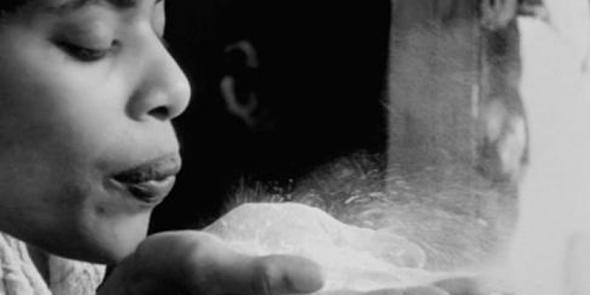A free online screening programme of Black experimental cinema curated by CAS as part of a residency with The Showroom at Metroland Studio

Schedule:
S. Pearl Sharp, Back Inside Herself, 1984, 4 minutes
Barbara McCullough, Water Ritual #1: An urban rite of purification, 1979, 6 minutes
Kym Ragusa, Demarcations, 1992, 5 minutes
Omah Diegu, African Women, U.S.A., 1980, 20 minutes
Martina Attille, Dreaming Rivers, 1988, 30 minutes
Please note that Demarcations (1992) and African Woman, U.S.A (1980) contain references to rape so viewer discretion is advised.
Please note that you must book via the eventbrite link below.
https://www.eventbrite.co.uk/e/streams-of-memories-tickets-230343442437
About this event
Streams of Memories is a free online screening programme curated by us at the culmination of our curatorial research residency with The Showroom at Metroland Studio, Kilburn, 2021.
The programme presents five experimental short films by S. Pearl Sharp, Barbara McCullough, Kym Ragusa, Omah Diegu, and Martina Attille; exploring the ways in which these experimental filmmakers weave and unravel stories, fears and hopes across the African continent and diaspora, between generations and over time.
Each film touches upon the sociality and sensuality of gathering; heightened by being shown together as part of this programme in company and dialogue with one another. S. Pearl Sharp’s film Back Inside Herself (1984) is a visual poem on self-invention and shows a Black woman finding her own sense of self while rejecting white hegemonic societal expectations of who she should be and how she should behave. Barbara McCullough extends the poetics of cinema in Water Ritual #1: An urban rite of purification (1979) to enact the spiritual and psychological journey of a Black woman as she (re)connects with the African continent and the Caribbean on a cosmological level. A different sense of wandering and wondering is conveyed in Kym Ragusa’s Demarcations (1992) through mediations on how the trauma of rape leaves its inflictions on the body yet does not determine self-identity. African Women, U.S.A. (1980) by Omah Diegu further explores misogynoir and transnational complexities by addressing family, labour and gender power relations. Dreaming Rivers (1988) by Martina Attille reflects and recalls the ghosts of love, loss and kinship.
Together these short films pull, release and upsurge the histories, experiences and lives of Black women. Rather than merely presenting how they are viewed, particularly by the white gaze, these films - or memories - intervene in dominant Western cinematic aesthetics and redirect vision towards how Black women themselves view the structures, relations and intimacies of their lives. These five filmmakers look at the camera not for recognition, but to confront and impose their looking onto and against the camera.
It is this ambivalence to visibility and wildness to capture that led us to accompany the screening programme with the essay Why Black Cinema? (1987) by the late poet, writer, and social activist Toni Cade Bambara. The text and film programme will be discussed in an accompanying reading group at The Showroom. This follows our s ongoing work to both explore and host discussion framed by the intersectional relations between contemporary art practice and (Black) literary theory.
The programme is free to attend, although booking via Eventbrite will be essential. after which you will receive a link to watch the films online over full the screening programme weekend, Friday 28–Sunday 30 January 2022.
With thanks to each of the filmmakers and to distributors Cinenova, Third Worlds Newsreel, UCLA Film Archive and LUX.
About CAS
CAS is an interdisciplinary curatorial platform founded in 2013 that foregrounds archival research to facilitate institutional as well as public awareness and engagement with past and present artistic productions from the African continent and diaspora. Core to CAS’s work is creating access to these knowledge productions and artistic curricula, including hosting trans-geographical dialogues that centre critical pedagogies and decolonial paradigms to bring into focus the historiography, theory, and practices of Black cultural workers for exhibition projects and public programming.
About Awa Konaté
Awa Konaté is a London and Copenhagen based curator, researcher, and founder of CAS. Her curatorial practice foregrounds archives, decolonial thought, and interdisciplinary frameworks of artistic productions from the African continent and diaspora with a focus on lens-based practices. Konaté has worked with The Showroom and The Danish Film Institute to mention a few. Her writings have been published in Third Text, Phaidon, Paletten Art Journal, and more.
About The Showroom
The Showroom is a contemporary art space focused on collaborative and process-driven approaches to cultural production; be that art work, exhibitions, events, discussions, publications, knowledge and relationships, within its locality
and beyond.
About Metroland Studio
A new site for research, experimentation and production, the new Metroland Studio residencies carry forward the core aims of Metroland Cultures to make new places for artists and art in Brent; and to build a legacy for the borough and its surrounding spaces, institutions and organisations.


